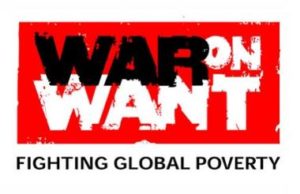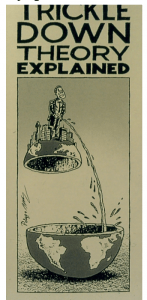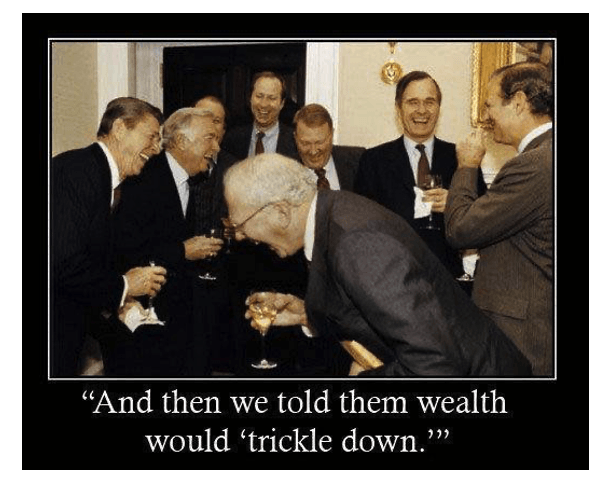By Pamela Machado
The Violence of Development website normally includes only items which relate very specifically to the region of Central America, with just occasional exceptions. The following article is one such exception and is provided by Pamela Machado, a Brazilian journalist and currently a Political Science postgraduate student in Lisbon. It briefly cites Central America but is appropriate for inclusion in the website because it reflects the very origins of ‘The Violence of Development’ book whose thesis was and is that the world is no less violent now than it supposedly was in the early and mid-twentieth century. We are grateful to Pamela for her permission to reproduce the article here.
If, on one hand, newspaper headlines are evidence of the numerous conflicts taking place around the world, on the other, a great deal of academic literature seems to reject the idea of widespread violence, insisting that humanity is living through an unprecedented period of peace which started after the end of the Cold War. While there have been significant achievements and clear improvements in a collective pursuit of world peace, it may be too optimistic, even naive, to assume that war is a thing of the past. Violence has grown more complex, making it more difficult to be measured and assess its impacts on society, which may give the impression that these are more peaceful times; nevertheless, this view is misleading because there is compelling evidence that shows conflict is still around us and that violence is still present in the lives of various communities around the world, particularly in low and middle-income countries in the Global South. Here I intend to refute the idea that humanity is living through the most peaceful time in its history by debunking the traditional methods of examining peace and war and by providing examples of increasingly violent countries.
The scars of the two world wars of the twentieth century were certainly a powerful reminder of the destructive nature of political conflict and have worked as a fuse to spur international action that seeks to assure stronger diplomatic relations between nations, most notably with the birth of the United Nations after the Second World War. Since then, there have been active efforts from governments around the world to stop and prevent war. At first glance, it may seem that humanity has overcome the obsession with war and violence – a view many authors agree with: In 1987, John Lewis Gaddis discoursed about ‘The Long Peace,’ the period of stability during the bipolar Cold War world caused by the threat of nuclear weapons. Steven Pinker’s ‘The Better Angels of our Nature’ is a book asserting that the present day is possibly ‘the most peaceful era of our species’. Other scholars concur: “Wars are not only less numerous today, they have also become dramatically less deadly over the past five decades,” wrote Mack (2008, p.75), further pointing out that war between countries reached a number closer to zero percent in 2004 and 2005 and the number of violent conflicts dropped by around 40 percent between 1992 and 2005. The reasons for the decline in violence and deaths during this period, says Mack, were the end of colonialism – given that colonial battles were a major source of political violence; the end of the Cold War itself – which has eased political tensions; and the activism stemming from the international community – both at institutional level as in the case of the UN’s peacemaking missions, and in the civil sphere through the engagement of NGOs.
However, this optimism is a flawed perception of reality and the data is not enough to convince that these are indeed peaceful times. War is a complex and multilayered affair, and measuring it based on the number of fatal victims is far too simplistic. Over the years, research has shown that, while conflict among nations has declined, the predominant form of conflict is now internal to a state. This means that, the increasing presence of non-state armed actors, such as criminal organisations, terrorists and drug factions, have added to the complexity of understanding the relationship between peace and violence. This argument is endorsed by Avis (2019, p.3) in a report for UK Aid: “While some argue war is on the decline, others point out that it merely has taken on new forms.” There may be distinct types of conflict in place nowadays, but the outcomes do not differ so much to the victims of war, causing alarming levels of distress. In many parts of the world, particularly beyond the North Atlantic geopolitical bubble, populations have witnessed growing levels of violence in recent years. A discussion about conflict based solely on the number of fatal victims of conflicts is narrow-minded and intellectually dishonest; it undermines the devastating social, economic and psychological effects that violence causes. This view may be promoted by Eurocentric scholars, who have been witnessing remarkable achievements in their territories but this may have skewed their views about the reality beyond their borders. The achievement of peace in Europe is, without a doubt, deserving of celebrations and praise; however, it can hardly be seen as a reflection of the state of the world. The 2018 report from the Peace Research Institute Oslo (PRIO) revealed that 2017 was one of the most violent years since the end of the Cold War, and non-state conflicts and internationalised intrastate conflicts represented “major threats” to achieving lower levels of violence. According to the report, the number of non-state conflicts rose by 20 in a single year from 62 in 2016 to 82 in 2017.
Populations in countries in the Global South have suffered from political violence to the point where millions see no alternative but to flee their home countries. In 2018, the number of forcibly displaced people increased by more than two million, resulting in 70.8 million refugees, internally displaced people and asylum-seekers who sought to escape persecution, conflict, violence or human rights violations (UNHRC, 2019). Furthermore, data from the World Bank shows that by 2030, up to two thirds of the world’s extreme poor population could live in a situation of fragility, conflict and violence. Conflicts also have a large economic impact, absorbing 80 percent of all humanitarian needs and reducing gross domestic product growth by two percentage points per year on average. These numbers alone should suffice to put into question the idea that the world is increasingly peaceful. A great account of the flaws in the idea that the world is more peaceful was given by Fazal and Poast in an article for Foreign Affairs (2019) where they pointed out that the improvements in medical treatments, sanitation and food distributions have led to a decrease in the number of deaths, and that “to focus only on the dead means ignoring war’s massive costs both for the wounded themselves and for the societies that have to care for them.”
A fundamental aspect in the discussion of contemporary trends of conflict is that a great number of victims of violence are not placed in war zones given that many states with high levels of conflict are not officially considered ‘at war’. Keith Krause (2016) calls attention to the fact that while “an average of 508,000 people died violently around the world each year between 2007 and 2012; only about seventy thousand – or 15 percent of them – died in wars or formal armed conflicts.” These numbers make clear that war and violence are not synonymous concepts and should be understood as a part of a bigger picture: wars may have waned, but violence remains. Examples of this high lethality in non-conflict zones is seen in many Latin American states, which frequently rank among the most violent places on the planet, and yet, they are not considered by the international community as being ‘at war’. Endemic violence is seen all across the region, where clashes between cartels, factions and policing, coupled with state corruption and governance failure, cause an unfathomable amount of pain and suffering to local communities.
The countries comprising the northern triangle of Central America – Guatemala, El Salvador and Honduras – frequently rank amongst the most violent in the world, even if they are not recognised as war zones. A 2017 report from Doctors Without Borders showed that people from the Northern Triangle experience “unprecedented levels of violence outside a war zone” enduring threats and assaults on a daily basis because “non-state actors perpetuate insecurity and forcibly recruit individuals into their ranks, and use sexual violence as a tool of intimidation and control.” In 2015, El Salvador reported 6,650 intentional homicides, which resulted in the horrifying murder rate of 103 per 100,000 inhabitants that year. The number made El Salvador a country with a higher rate of violent deaths than all countries suffering armed conflict, with the exception of Syria. For the sake of comparison, according to the United Nations Office on Drugs and Crime, the global average was 6.1 homicide victims per 100,000 people in 2017; in Europe the rate was even lower at 3 victims per 100,000 people.
Martin Mowforth, a long-term connoisseur of Central American affairs notes in his book ‘The Violence of Development’ (2014) that “development today is no less violent than it was during the Cold War. The use of the political strategy of death threats and assassinations remains remarkably common in Central America.” Mowforth indicates the purpose of his book was to make clear that violence has not diminished in Central American countries, even after Peace Accords had been struck between warring factions. Sources of violence include death squads, military personnel, paramilitary units and even a small but powerful elite of businessmen and politicians who recklessly deploy violence upon those who stand against their interests. “It is difficult to avoid the conclusion that the violence and injustice that reign in many Central American spheres of activity are the rule rather than the exception,” Mowforth says.
Further down south, in Brazil’s Rio de Janeiro, the ‘militia’ is a source of political violence whose activities have been increasing as part of a process of privatisation of public security. Militias are groups of retired or former policemen who leave the public force to work in the private sector and allegedly work to protect communities from drug trafficking and faction-related violence, but end up bringing conflict rather than preventing it. According to Robert Gay (2017), in 1985, there were three times as many policemen in Brazil compared to private sector insecurity, but in less than 15 years, this ratio was reversed. Militias are not officially part of the government – neither should they have any political affiliation – but a public investigation in Brazil “revealed that militias enjoy extremely close ties with all manner of public officials and provide a handful of elected representatives” (Gay 2017, p.89). The population of the urban periphery in Rio, where militia activities are concentrated, described the militias as criminal actors “equally, if not more, violent as the drug gangs that they kept out or were supposed to replace,” noted Gay.
The examples above are intended to show the murky nature of conflict and pose a question to the methods of assessing war. The idea of ‘long peace’ defended by many scholars is refutable and represents only one side of a multifaceted discussion. It is also condescending because a misleadingly positive account of the state of conflict in the world today may result in poor policies and less effective international action. The present levels of violence do not represent a minimised version of previous war times; rather, they point to the failure of tracking and recording methods since the main metrics seem to portray a deceptive picture of the state of the world. It feels important to highlight the cases of violence cited above as they tend to escape media attention and the literature available does not do justice to the challenges and difficulties that local communities face because of such high levels of violence.
References
Avis, W. (2019). Current trends in violent conflict. Brighton, UK: Institute of Development Studies.
Fazal, T. M., Poast, P. (2019). War is not Over: What the optimistics get wrong about conflict. Foreign Affairs. Available at : https://www.foreignaffairs.com/articles/2019-10-15/war-not-over
Gaddis, J. L. (1986). The Long Peace: Elements of Stability in the Postwar International System. International Security. Vol. 10, No. 4 (Spring, 1986), pp. 99-142. Cambridge: MIT Press
Gay, R. (2017). Of Criminal Factions, UPPs, and Militias: The State of Public Insecurity in Rio de Janeiro. Violence in Latin America and the Caribbean: Subnational Structures, Institutions, and Clientelistic Networks. Cambridge: Cambridge University Press
Krause, K. (2016). From Armed Conflict to Political Violence: Mapping and Explaining Conflict Trends. Daedalus Vol.145, No. 4, pp. 113-126. Available at: https://doi.org/10.1162/DAED_a_00416
Mack, A. (2008). Global Political Violence: Explaining the post-Cold War decline. Strategies for Peace: Contributions of International Organizations, States and Non-State Actors. Farmington Hills: Barbara Budrich Publishers
Médecins Sans Frontières (MSF). (2017) Forced to Flee Central America’s Northern Triangle: A Neglected Humanitarian Crisis. Available at: https://www.msf.org/sites/msf.org/files/msf_forced-to-flee-central-americas-northern-triangle_e.pdf
Mowforth, M. (2014). The Violence of Development. The Violence of Development. Available at: https://theviolenceofdevelopment.com
Peace Research Institute Oslo (PRIO), (2019). Trends in Armed Conflict, 1946 – 2017. Available at: https://www.prio.org/Projects/Project/?x=1631
Pinker, S. (2011). The Better Angels of our Nature: Why Violence has Declined. New York: Penguin Books.
UNHRC, UN Refugee Agency. (2019). Global Trends: Forced Displacement in 2018. Available at: https://www.unhcr.org/5d08d7ee7.pdf
UNODC, 2019. Global Study on Homicide. Available at: https://www.unodc.org/documents/data-and-analysis/gsh/Booklet1.pdf
World Bank, 2020. Fragility, Conflict and Violence. Available at: https://www.worldbank.org/en/topic/fragilityconflictviolence/overview
 Stitcher is an online service that provides listeners with a wide range of podcasts. One of its series of broadcasts is entitled ‘Jointly Venturing – Let’s Talk World Citizenship’, and on the 22nd July 2020 the presenter Scott Leckie talked with Grahame Russell.
Stitcher is an online service that provides listeners with a wide range of podcasts. One of its series of broadcasts is entitled ‘Jointly Venturing – Let’s Talk World Citizenship’, and on the 22nd July 2020 the presenter Scott Leckie talked with Grahame Russell.  This week we launched our exciting
This week we launched our exciting 
 In yet another 2019 article entitled ‘Burn, Neoliberalism, Burn’, Pepe Escobar also considered that the Latin American elections of 2019 were of major significance in the demise of neoliberalism. He believes those elections to have been a major ‘blowback’ against neoliberal economic development and its associated policies of privatisation and deregulation. He does at least admit, however, that:
In yet another 2019 article entitled ‘Burn, Neoliberalism, Burn’, Pepe Escobar also considered that the Latin American elections of 2019 were of major significance in the demise of neoliberalism. He believes those elections to have been a major ‘blowback’ against neoliberal economic development and its associated policies of privatisation and deregulation. He does at least admit, however, that: